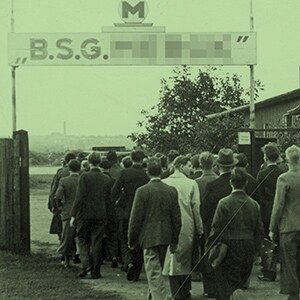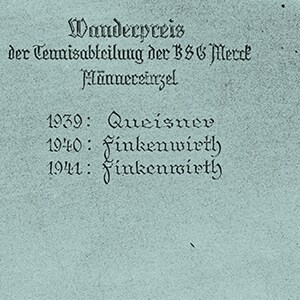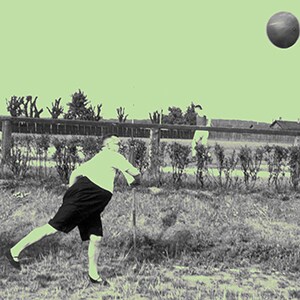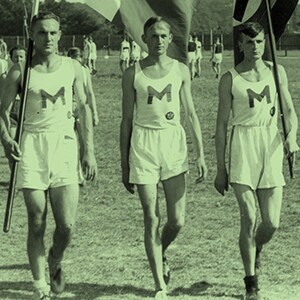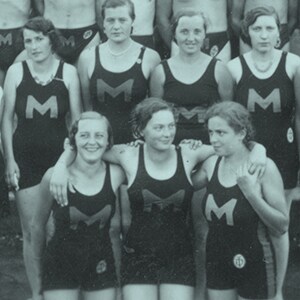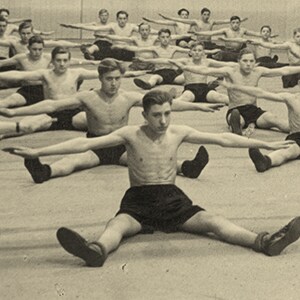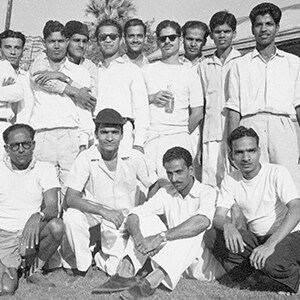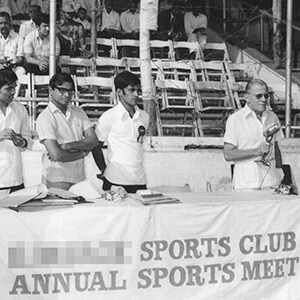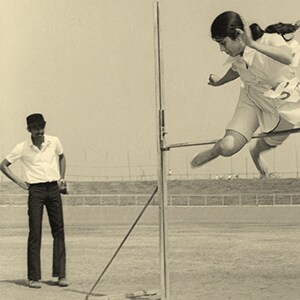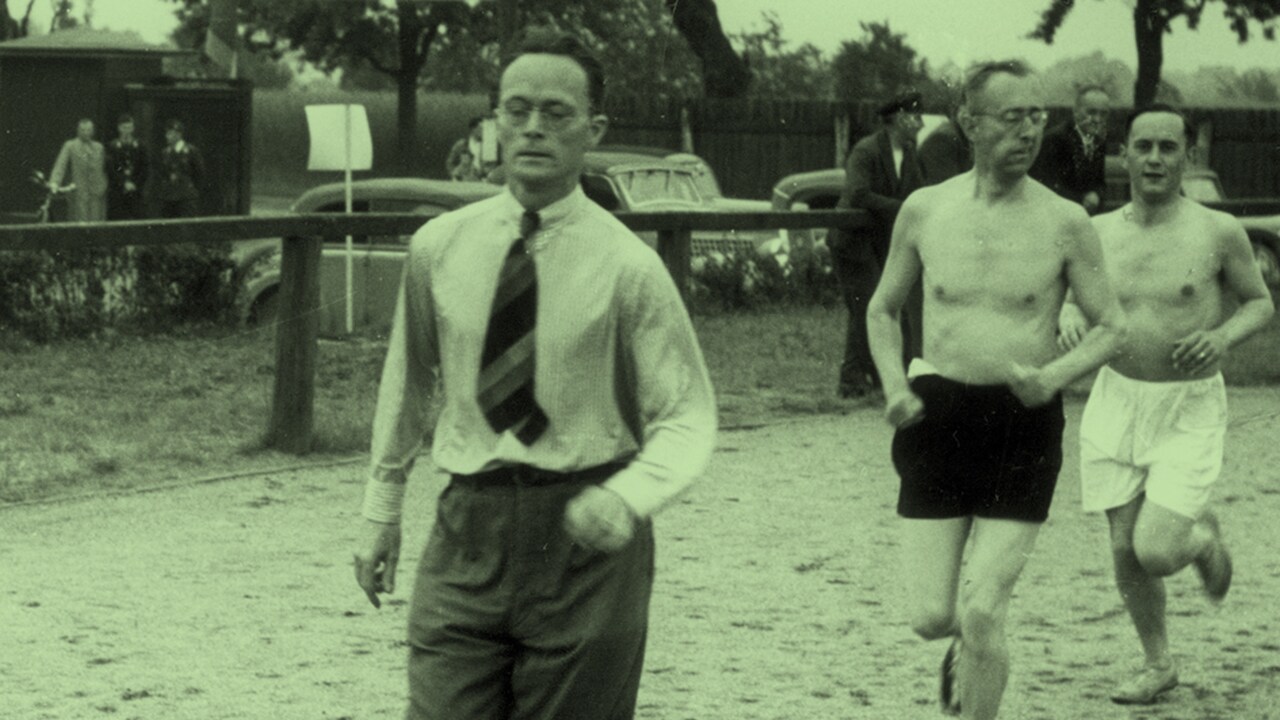
»Being too old, too fat, or too clumsyis no obstacle.«
Kurt Ackermann, Head of the Sports Group at E. Merck, Darmstadt, Germany, 1938
Company sports have a long tradition at the company. Today’s the company sports group (BSG) was not founded until 1973, but formal company sports activities exist at the company prior to World War II.
Company sports begin at the company in 1929 with the establishment of the »Merck Darmstadt Sports Department«. According to its statutes, the aim of the departmentis »the practice and encouragement of all types of sports, which will be overseen by the Executive Board of the company in the interests of training and strengthening the body and mind«. The Sports Department is also intended to support the »Sanitäts-Zweig-Kolonne«, a paramedic group founded in 1926, in finding new members with the level of physical fitness required for its tasks.
For an annual membership fee of 6 Reichsmarks, which is deducted from employees’ wages, any company employee can join the Sports Department. Swimming, boxing, fistball, soccer, handball, shooting, ski exercises, athletics, jogging in the forest, table tennis and so-called »general fitness« are offered.
In 1934, the Sports Department becomes the »Sports Club«. The club, which employees’ family members are also permitted to join, has 421 members in the year of its founding. In the following years, company sports increasingly come under political influence and become the domain of the National Socialist organization »Kraft durch Freude« (Strength through Joy). In 1937, once sportsclubs are no longer allowed to bear a company name, the club changes its name to »Maulbeerallee Sports Club«, after the address of the sports field. In 1938, the club decides to become a sports group – a response to political demands for tighter organization and the implementation of the so-called»Führer principle« at all levels. Kurt Ackermann, engaged by the company as a full-timesports instructor, is therefore both the first head of the »Sports Group« and a sports official of the National Socialist organization »Kraft durch Freude«.
At first, the number of company sports participants rises steadily, especially since almost every issue of the employee newsletter features reports on company sports and encourages employees to take part: »It is our duty to keep ourselves healthy and fit in order to be able to carry out our work to the best of our ability and thus give our comrades at the front our full support.« As World War II progresses, the Sports Group has fewer and fewer members and there are hardly any sports instructors. In 1945, only track and field, basketball, tennis, table tennis, swimming, gymnastics for children and shooting are offered. The end of World War II also means the temporary end of the Sports Group.
When calls to attend a compulsory company sports events are issued, the workforce gathers on the sports field. Speeches, music, gymnastics, putting competitions and marathons are featured. The best tennis player wins a company trophy. The competitions can also be completed »by less athletic men in light-weight everyday clothing«.
The shirts are white, red or red-and-white striped and have a large red or white »M« on the front. For young employees, there is compulsory training, held on the top floor of the new administrative building or on the sports field. Otherwise, company sports take place outside working hours.
Subsidiaries in other countries also offer company sports activities early on – for example India, where the Sports Club offers cricket and other sports. Yoga, which comes from India, was added to the program of the »Sports Group« in 2017 – 88 years after the founding of the »Merck Darmstadt Sports Department«.

